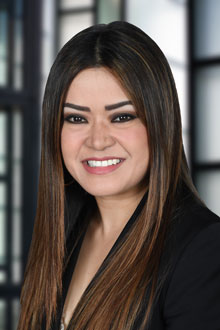Cross-Office IP Litigation Team Secures Significant Appellate Win in Cell Phone Case Design Patent Matter
Atlanta, Ga. (April 20, 2020) - Atlanta Partner Joshua D. Curry, along with Los Angeles Partners Brian G. Arnold and Josephine A. Brosas, and Los Angeles Associate Jean M. Kim, recently secured the reversal of a summary judgment order that had been entered against their client, a phone accessory manufacturer. The decision, which was issued by the U.S. Court of Appeals for the Federal Circuit, and reported in Law360, concluded that the lower court erroneously invalidated our client’s design patents as obvious.
In the underlying matter, we represented Spigen Korea Co., Ltd., a manufacturer that held design patents on cell phone cases. A California district court had determined that three of Spigen’s design patents were invalid as obvious because they were “basically the same” as an earlier patent. As such, the court entered summary judgment in favor of an accused infringer and against our client. We then appealed.
On appeal, the Federal Circuit found that the lower court improperly resolved a factual dispute and thus erred in granting summary judgment against our client. In reaching its conclusion, the court focused on testimony from our expert, who had determined that Spigen’s patents and the earlier patent were not “at all similar, let alone ‘basically the same.’” Our expert described that the earlier patent had a wider surface and lacked the shell-like features and aperture that Spigen’s patents included. According to the Federal Circuit, this expert testimony precluded a finding of obviousness on summary judgment because it constituted competing evidence that created a factual dispute. As such, the Federal Circuit reversed the lower court’s grant of summary judgment.
Mr. Curry, who serves as the vice-chair of Lewis Brisbois’ Intellectual Property & Technology Practice, told Law360 that this case clearly demonstrated the importance of sending design patent issues to a jury. He explained, “We think it validated Spigen’s position that a jury at trial, and not the judge at summary judgment, must decide on whether a primary prior art reference creates basically the same visual impression as the patent.” He added, “That’s really important in the patent field because it strengthens designers’ rights.”
Moreover, Mr. Curry noted that this decision was particularly significant because the Federal Circuit historically has issued relatively few design patent rulings compared to utility patent rulings. The court’s analysis in this matter, therefore, will provide guidance for future cases.
Further details of this case are available on Law360 in the article titled “Fed. Circ. Gives New Life to Axed Phone Case Design Patents” (subscription required).

